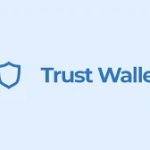Does Trust Wallet Need KYC? A Deep Dive into the World of Cryptocurrency Wallets
### Introduction to Trust Wallet
Trust Wallet is a popular mobile cryptocurrency wallet that allows users to store, manage, and exchange a wide variety of digital assets. Launched in 2017 and acquired by Binance in 2018, the wallet has gained a significant user base due to its user-friendly interface and robust security features. Unlike many centralized exchanges, Trust Wallet allows users to maintain full control over their private keys, making it a popular choice for those valuing decentralization.
### Understanding KYC in Cryptocurrency
KYC, or Know Your Customer, is a regulatory process used by financial institutions to verify the identity of their clients. In the context of cryptocurrency, KYC procedures have become more common as governments and regulatory bodies seek to combat money laundering, fraud, and other illicit activities. Many exchanges implement KYC processes, requiring users to submit personal information and identification documents before they can trade or withdraw funds.
### Trust Wallet’s Approach to KYC
One of the standout features of Trust Wallet is its commitment to user privacy. Unlike centralized exchanges, Trust Wallet does not mandate users to undergo KYC procedures to access its core functionalities. Users can create a wallet and start managing their crypto assets without providing personal information. This aspect appeals to individuals seeking privacy and autonomy over their financial transactions.
### The Benefits of No KYC
The absence of KYC requirements in Trust Wallet comes with several advantages:
1. **Privacy Protection**: Users can retain their anonymity, which is a significant concern for many in the cryptocurrency community. This privacy is particularly appealing in today’s digital age, where data breaches are commonplace.
2. **Accessibility**: Without KYC, users can easily access the wallet and its functionalities without the hassle of submitting documents or waiting for approval. This accessibility is particularly advantageous for new users unfamiliar with the KYC process.
3. **Faster Transactions**: By bypassing KYC, Trust Wallet allows for quicker transactions since users do not have to wait for their identity verification to be processed.
### Risks Associated with No KYC
While the absence of KYC has its benefits, it also poses certain risks:
1. **Limited Recourse**: In the event of fraud or loss of funds, users may have limited options for recovery since there is no verification in place. Without KYC, Trust Wallet cannot assist users in tracing stolen funds.
2. **Regulatory Compliance**: As regulations surrounding cryptocurrency continue to evolve, the lack of KYC may put Trust Wallet at risk of regulatory scrutiny, especially in countries with strict compliance requirements.
3. **Potential for Illicit Activity**: Anonymity can sometimes encourage malicious actors to use the wallet for illicit activities, which could lead to negative perceptions and regulatory backlash.
### Alternative Onboarding Solutions
Although Trust Wallet does not require KYC for its core operations, users seeking to purchase cryptocurrency through the wallet may still encounter KYC requirements. Trust Wallet partners with various decentralized exchanges and fiat on-ramps that may require KYC. This hybrid approach allows users to retain privacy while still providing avenues for those who wish to convert fiat to crypto legally.
### KYC and Compliance Trends in Crypto
The cryptocurrency landscape is rapidly evolving, and so are the trends related to KYC and regulatory compliance. Many exchanges are starting to adopt more stringent KYC measures to comply with international norms and reduce the risk of money laundering. This trend puts pressure on wallet providers, even decentralized ones, to consider their KYC policies to remain compliant with upcoming regulations.
### Global Perspectives on KYC Regulations
The approach to KYC regulations varies significantly from one region to another. In jurisdictions like the European Union and certain Asian countries, there’s an increasing push for strict KYC measures. In contrast, other regions are still relatively lenient with their KYC requirements. Trust Wallet, by not enforcing KYC, may find itself in a complex position as regulations differ globally.
1. **Europe**: European countries have seen a robust push toward regulatory compliance. The EU’s Anti-Money Laundering (AML) directives could eventually influence how wallets like Trust Wallet operate, potentially leading to some changes in their KYC policies.
2. **United States**: In the U.S., regulations around cryptocurrency are becoming increasingly stringent. Close scrutiny from bodies like the SEC and FinCEN suggests that wallets may need to adapt their practices to comply, particularly when it comes to preventing money laundering.
3. **Asia**: In Asia, there’s a wider variety of regulatory approaches. While Japan and South Korea have strict regulations, other countries in the region are more permissive, allowing for more freedom in cryptocurrency management without KYC.
### User Education and Awareness
The debate around KYC in wallets like Trust Wallet underscores the importance of user education. Users must understand the implications of using a non-KYC wallet versus a KYC-required service. Knowledge about how their data is handled, the security of their assets, and the potential risks involved is crucial for making informed choices in the cryptocurrency realm.
1. **Security Awareness**: Users should equip themselves with knowledge of how to secure their wallets and private keys. This information is pivotal in preventing unauthorized access and minimizing risks.
2. **Understanding Regulations**: Being informed about existing and upcoming regulations in their jurisdiction can help users navigate the complex landscape of cryptocurrency usage more effectively.
3. **Risk Assessment**: Users should assess their risk tolerance regarding privacy, security, and legality when choosing between KYC-required services and those that offer more anonymity.
### The Future of Trust Wallet and KYC

Looking ahead, Trust Wallet’s stance on KYC may need to evolve to maintain compliance with regulatory developments. As governments worldwide take more interest in cryptocurrency regulation, wallets could face pressure to adopt more robust identity verification processes. The balance between user privacy and regulatory compliance will be delicate, and Trust Wallet will need to navigate these waters carefully.
### Conclusion
In summary, Trust Wallet offers a compelling alternative for users seeking cryptocurrency management without the burden of KYC. Its commitment to privacy, accessibility, and user autonomy resonates with many in the crypto community. However, as the regulatory landscape continues to shift, it will be crucial to watch how Trust Wallet and similar platforms adapt to meet new challenges while preserving the core values that attract their user base.
Ultimately, whether KYC will become a necessity for Trust Wallet remains to be seen. Users must stay informed and vigilant in navigating the complex cryptocurrency landscape, ensuring that their choices align with their values regarding privacy, security, and compliance.


